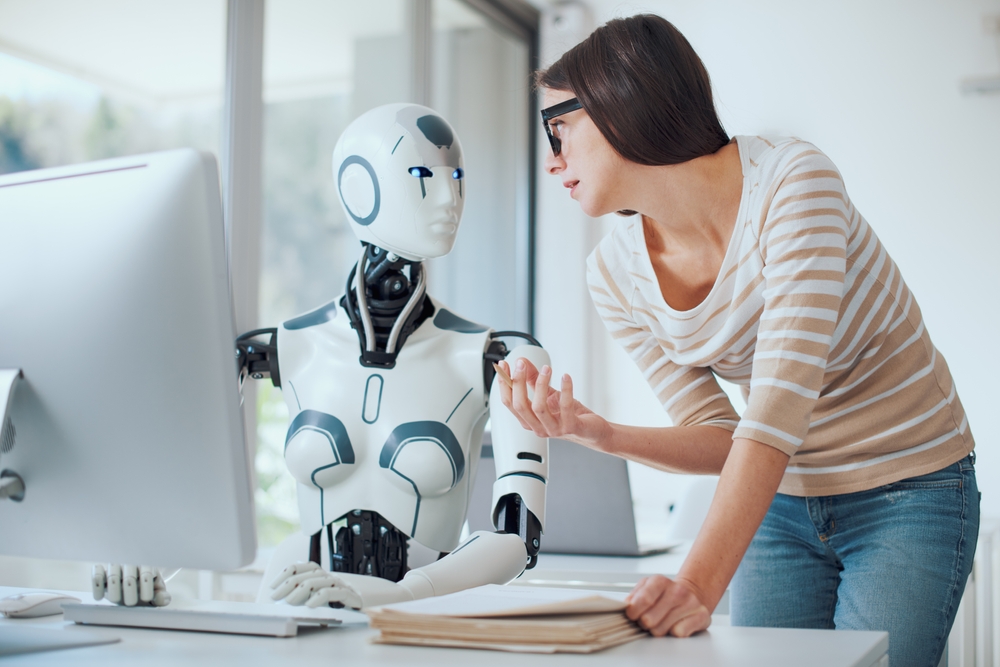Dr. Gitanjali Chhabra, assistant professor at Canada West University, and Dr. Noor Rizvi, lecturer in the Department of English at Kansas State University, discuss the influence of collective moral imagination on human decisions and how it improves responsibility and fairness.
As artificial intelligence (AI) continues to advance, human decision-making is evolving through systems that integrate human judgment and machine input. For these systems to function effectively, we need to stay informed and harness our moral imagination—our ability to assess, imagine, and respond to complex situations with creativity and empathy.
Creating a collective moral imagination between humans and machines is extremely important today. By combining human empathy and situational understanding with the capabilities of AI, organizations can make more inclusive, responsible, innovative, and creative decisions.
In areas such as healthcare, self-driving cars, and finance, this approach can yield effective and ethically sound results.
A collective moral imagination should include humans and machines working together to rethink ethical solutions, foster open dialogue, and promote shared moral responsibility.
decision-making area
Healthcare field
Currently, the relationship between doctors and patients is often strained in the medical field. But integrating AI can create spaces for real healing and connection. AI’s ability to personalize care, optimize resources, and support physical and mental health represents not only a technological advance but also a moral shift toward more responsive, context-aware, and humane medical practice.
According to a 2025 report from the World Economic Forum, an AI software twin trained on 800 brain scans of stroke patients and tested on 2,000 patients showed very impressive results. AI can also find fractures in more X-rays than humans alone. Researchers suggest that integrating AI-generated insights with human expertise can speed up both the diagnostic process and the development of efficient treatments.
financial sector
Similarly, AI can personalize financial planning and accelerate risk assessment and management. Assets managed by robo-advisers are expected to grow to $5.9 trillion by 2027, more than double the $2.5 trillion in 2022, according to PwC.
Addressing and mitigating bias requires comprehensive, multifaceted strategies. This includes rigorously evaluating datasets to prevent historical disparities, continually assessing fairness with relevant performance metrics, and using explainable AI techniques to ensure transparency in decision-making.
In critical financial situations, human judgment remains essential to recognize and correct issues that automated systems may miss. Organizations must integrate fair evaluation, ethical governance, and ongoing oversight throughout their AI processes to maintain public trust and meet regulatory standards.
AI can not only automate tasks but also reshape financial ethics. For example, predictive algorithms can proactively detect fraudulent trading patterns, allowing human regulators to stay ahead of them. A hybrid system that combines algorithmic precision with human morality can ensure fairness in credit ratings, loans, and anti-fraud processing. Overview of AI Principles – OECD AI can be adopted by financial institutions to move from “profit-driven” metrics to “ethical profitability” metrics and balance corporate social responsibility with financial growth.
In doing so, the financial system will be both technically and ethically secure and deeply founded on trust, transparency and fairness.
self-driving car
In self-driving cars, the collective moral imagination of humans and machines creates transformative and innovative ethical systems within organizations, strengthening diverse perspectives and creativity. By fostering dialogue between machines and humans, organizations can move beyond binary choices toward ethically responsive, more inclusive, and future-oriented decision-making.
Achieving a collective moral imagination must focus on addressing AI and human insights, AI and human perspectives, and AI and human challenges and biases in decision-making processes. For example, the Moral Machine, a hybrid moral imagination, will impact the “trolley problem” by fusing situational awareness from AI sensors with human ethical reflection to identify the least harmful outcome.
AI vehicles learn from real-world feedback and data, allowing them to become skilled, safe, morally responsible, and compassionate co-pilots. Therefore, the cars of the future will not only be self-driving, but also morally conscious.
supporting collective moral imagination
As humans and machines learn from each other, we need to incorporate human and machine outputs to ensure decision-making processes align with our collective moral imagination.
We propose to develop systems in which machines and humans can work together to build an ethical and sustainable future.
Source link

